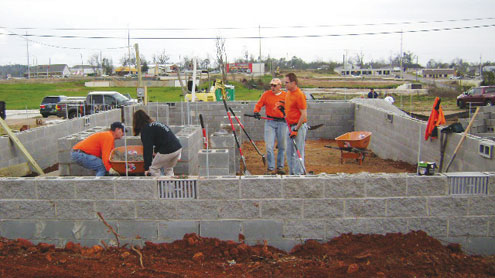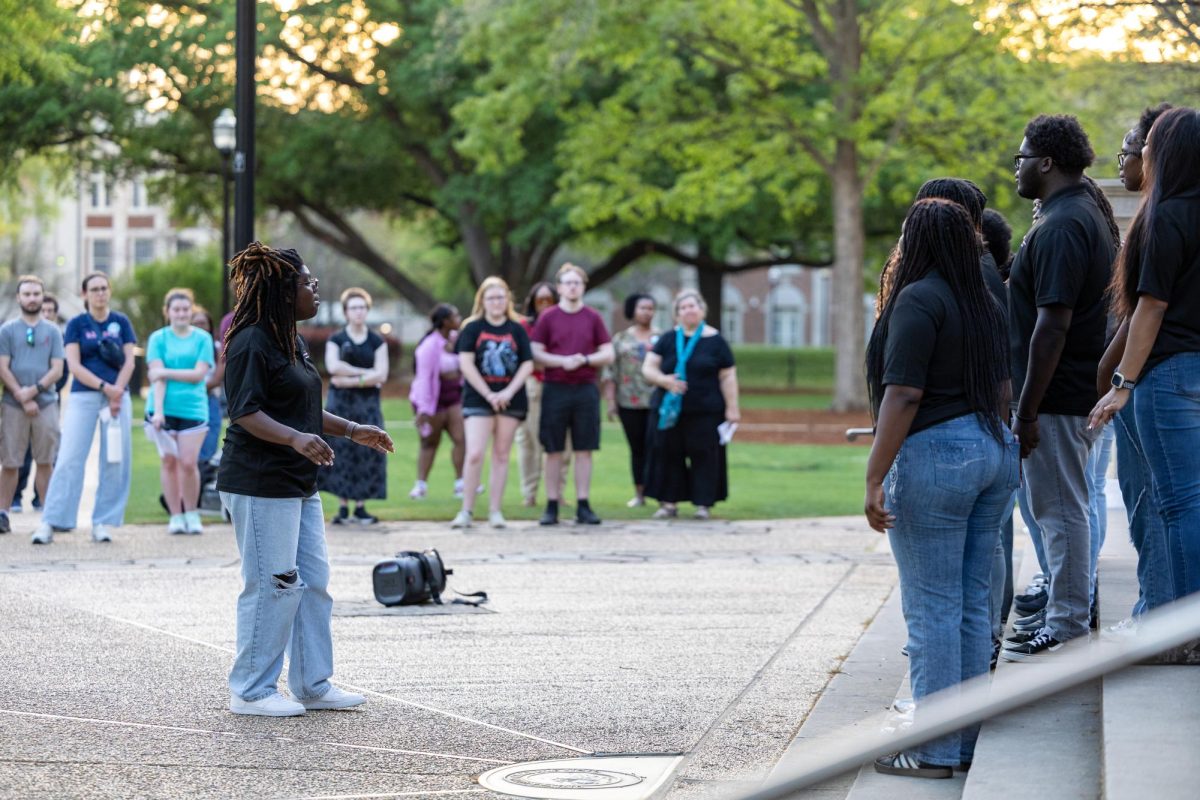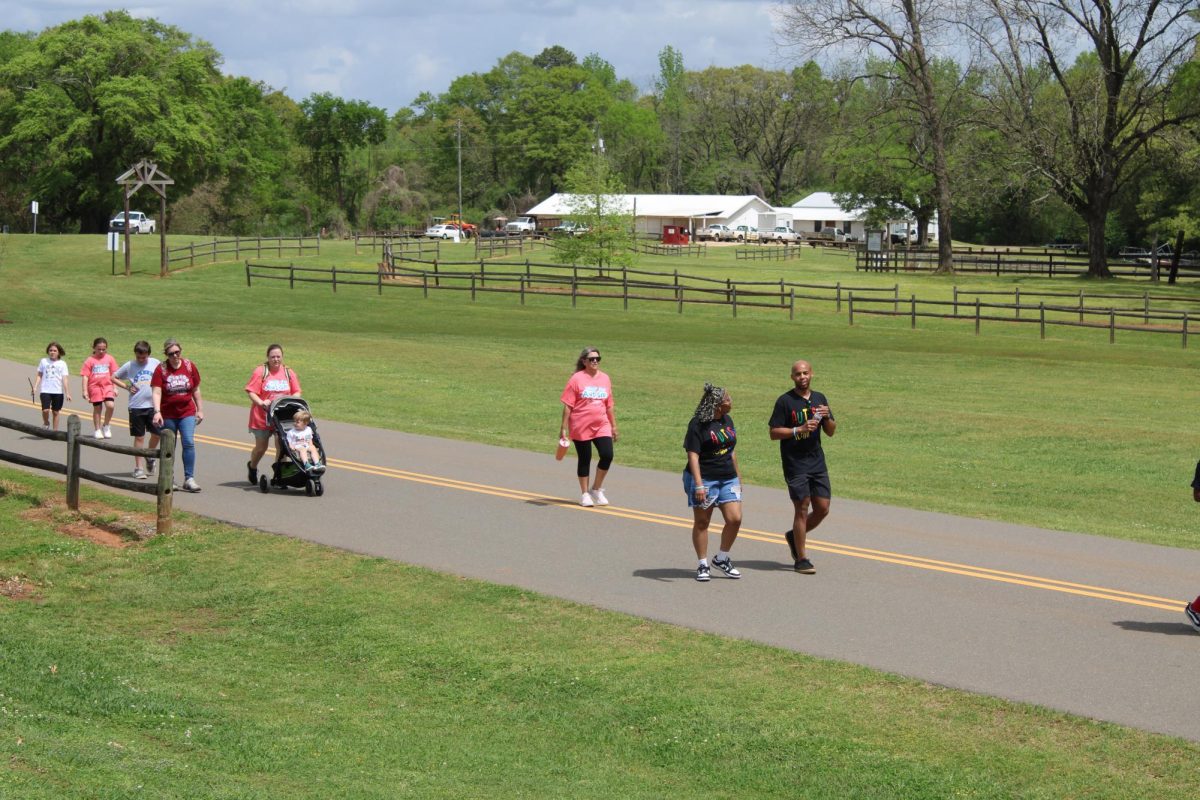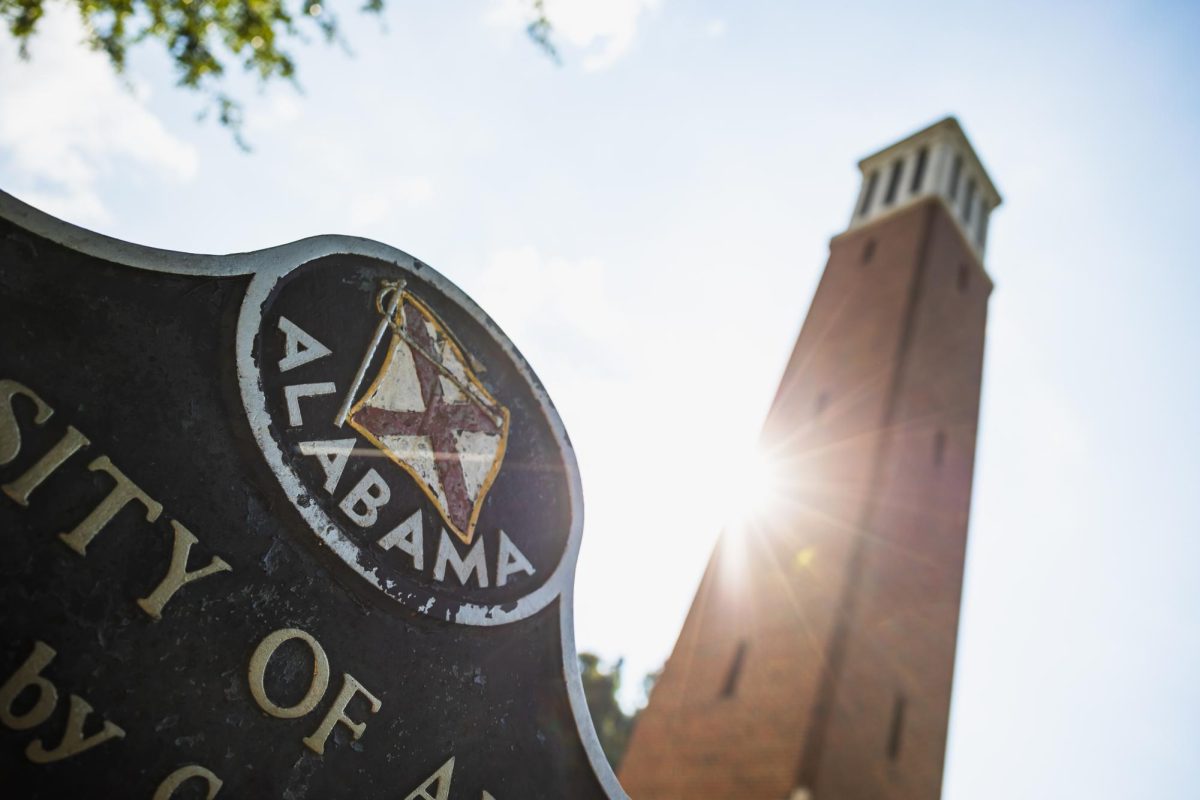 Bernard Jefferson earns his money feeding the residents of a nursing and rehabilitation home in Northport, but since April of last year, he has lived without someone to feed him.
Bernard Jefferson earns his money feeding the residents of a nursing and rehabilitation home in Northport, but since April of last year, he has lived without someone to feed him.
That month, an EF4 tornado took the lives of his wife Jacqueline and their two grandchildren Cedria and Keyshawn. For Jefferson, nothing has been the same since that day, but without his wife to keep him well fed, he said having to make his own meals has been the hardest change to adjust to.
“My wife loved to cook, and I didn’t have to worry about making anything to eat,” Jefferson said. “I have to cook for myself now. I have to do everything for myself now.”
Standing over a stove as he boils plain white rice and cooks whatever meat is around may never seem normal to Jefferson, but he is proud to have that stove in a new house that Habitat for Humanity built for him and said his dietary situation has been worse, especially immediately after the tornado displaced him.
“After the storm, I didn’t eat for two or three weeks,” Jefferson said. “Not real food, anyway. I just had to have a bag of potato chips and keep going.”
Jefferson moved into his new home on 7th Street East on March 23. It sits across the road from the property on which his last home was destroyed, and other than four other small, rebuilt homes, the street is still an empty shell of what was before.
The new location, the new house, the cooking, the quiet – they are all drastically different from the life he knew and lost.
“If you go through that kind of loss, your life is going to change forever,” Jefferson said. “I know mine has.”
He also battles the newfound fear of dangerous weather he shares with many tornado survivors.
“We didn’t think anything of the storm. We’d always heard about severe weather out here, and we really didn’t take it that seriously,” Jefferson said. “It scares me now, everything really scares me. I worry I’ll lose it all again, and I don’t need to go through all that.”
In spite of all the loss he’s seen, Jefferson fights every day to be happy, positive, or at least satisfied.
“I just take it one day at a time, try to think positive things, help the people who helped me and try to help others, also,” he said. “I look at what I went through, and I look at arguing with someone and it’s just like going through another storm, so I just walk away from anything negative. I’m not going through another storm.”
Jefferson fears those mental storms in the same way he now fears tornadoes. Losing his positivity could send him into a depression and losing his temper could send him to prison. Jefferson spent a year and a half there already and will do anything to avoid being incarcerated again.
“Some days I have good days, and some days I have bad days,” Jefferson said. “But if someone says something negative to me I just say, ‘You’re not going to steal my joy, you’re not going to take my smile.'”
That phrase has become a mantra for Jefferson. His joy, what little is left, is what allows him to keep going on a daily basis.
“It’s hard to deal with it, and then, sometimes, it’s not because I figure it happened for a reason. Everything does,” he said. “I guess all this, it’s for me to try to learn to do better for myself. A lot of people don’t realize when they lose their loved ones; you’ve got to know how to do things for yourself. That’s basically what I’ve been trying to do.”
Jefferson is cooking and cleaning and working for himself and is fiercely proud of the independence he has been able to develop. He is not, however, above accepting help. The West Alabama Food Bank delivers food to his new address and Habitat for Humanity gave him the roof over his head.
Jared Patterson, the volunteer and partnership director for Habitat for Humanity Tuscaloosa, said after about a month of planning and arranging teams of volunteers, the construction of Jefferson’s new home – in what they called a blitz build – took only 12 days.
“A blitz build is fun, quick and it works very effectively,” Patterson said. “But it takes a lot of time and a lot effort and everything has to fall into place very flawlessly.”
Even so, the nonprofit has placed eight families into new homes in the last year. Everyone wishes for faster progress after a disaster, Patterson said, but all told, he’s proud of the work Habitat for Humanity has been able to do.
“It’s been a fantastic year,” Patterson said. “Everything that’s been accomplished has been nothing short of phenomenal. I don’t think, in the first year after the tornado, that it could have gone any better.”
Jefferson said moving into a new home of his own is one of the only good things that has happened to him since the storm. Patterson said he and the rest of the Habitat for Humanity staff were proud to contribute to that rare, happy moment in his new life.
“Everyone has their own story and Mr. Jefferson obviously suffered so much and dealt with so much tragedy, it broke my heart. One look at his face at the dedication [of Jefferson’s new home] and I started tearing up, ” Patterson said. “Knowing that we were able to build him a house that overlooks his previous home, where he can feel close to his family, that really means a lot to me.”
It means a lot to Jefferson, too, who said he wanted to keep living in Alberta, even after the tragedy of losing his family, living so close to their last home allowed him to still feel close to them.
“I lost my wife, but we lived across the street, and I thought, if I live here, I’m still with my wife,” Jefferson said. “A lot of people don’t understand that, but that’s just the way I feel. It’s where my memories are. This is where I’ll be staying; just praying I won’t have to move again, not for that reason, anyway.”
Jefferson described Jacqueline as compassionate, even to strangers and as someone who never questioned the motives of those who said they were in need, happily giving anything she could spare to anyone who asked for it. On the day of the tornado, the couple was less than a month away from their 10-year anniversary.
“If I could make one thing happen, I’d bring my wife back. That would be the only thing I’d want,” Jefferson said. “Still, I think it hurt me more for my grandkids, though, because they were so young. They’d just started their lives.”
Cedria, his granddaughter, was a 9-year-old straight-A student. Keyshawn, her brother, was only five and Jefferson said he stayed out of trouble and his sister was there to tell on him if he ever stepped out of line. All Keyshawn needed was his prized possession, his bicycle.
“I never had any problems with him,” Jefferson said. “All you had to do was give him his bike and he’d be up and down the street all day long. He never harassed anyone.”
Less than a week after the storm, the Jacqueline’s mother succumbed to a long-term sickness and Jefferson, with his wife’s loved ones, buried four of his family members on the same day.
In the face of such loss and sorrow, many survivors of the storm relocated, leaving Alberta to try to build another life. Jefferson, though, is here to stay. He said he owes that much to Jacqueline who, even during his time in prison, never abandoned him.
“She helped me out the whole time and a lot of people are not like that. I don’t care if they’re married or not,” he said. “That’s why no matter what kind of day it is I always try to go visit her, and that’s why I’m staying here. She never left me, I ain’t leaving her”









